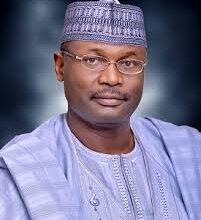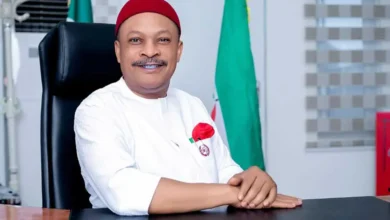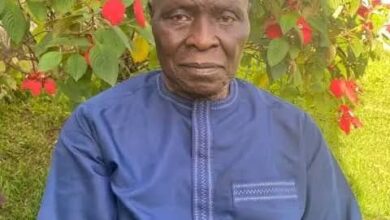Political Science Body Raises Alarm Over Failing State of Democracy in Nigeria

By Omowumi Omotosho
The Nigerian Political Science Association (NPSA) has raised serious concerns about the health of Nigeria’s democratic system, warning that the country’s liberal democracy is stagnating and failing to meet the expectations of its citizens, 26 years after the return to civil rule in 1999.
In a press statement released on Wednesday and signed by its president, Professor Hassan A. Saliu, the association observed that while democracy in Nigeria has not collapsed, it is “undoubtedly failing to deliver to the satisfaction of its citizens.”
“One can argue that Nigeria’s liberal democracy has not yet collapsed, but it is undoubtedly failing to deliver to the satisfaction of its citizens. Twenty-six years after its return in 1999, the extent of democratic consolidation in Nigeria warrants examination. Democratic consolidation, which refers to the widespread acceptance of democratic values and practices among the population, is a key concept in this analysis,” the association stated.
According to the NPSA, Nigeria falls short on key indicators of democratic consolidation such as electoral integrity, likelihood of opposition victories, and voter participation. The association argued that democratic consolidation—defined as the widespread acceptance of democratic values and practices—has not been fully achieved in the country.
“In plain language, it refers to a situation in which democracy is the only game being played in town by all the citizens; none of the citizens is contemplating any other system of government apart from democracy,” the association explained.
The NPSA expressed concern that despite multiple election cycles since 1999, the integrity of Nigeria’s electoral process remains questionable. Most elections, it noted, have ended in litigation over alleged rigging.
“Parameters to assess democratic consolidation include free and fair elections, a higher likelihood of power alternation among political parties, robust civil society engagement, high voter turnout in elections, adherence to the rule of law, and the absence of major disputes and violence after elections, among others.
Let us examine three key parameters in democratic consolidation that apply to Nigeria’s democratic state: the absence of hindrances to opposition parties winning elections, the quality of elections, and voter turnout. These parameters are pivotal in our analysis. Some rounds of elections have taken place in the current republic, with most ending in court due to allegations of rigging, which has drawn the judiciary into the political equation and dented its integrity in the process,” the association stated further.
The association stated that “the 2015 presidential election was a notable exception, as no litigation came up in court at the presidential level. However, even in that case, the runner-up genuinely believed he was manipulated out of the election by a combination of factors, not excluding the nativity factor.
Another parameter is the likelihood of opposition parties winning elections at regular intervals. Nigeria has witnessed this only once since 1999, when the All Progressives Congress (APC) candidate, Muhammadu Buhari, won the presidential election in 2015 with 15,424,921 votes, defeating the Peoples Democratic Party (PDP) candidate, Goodluck Jonathan, who scored 12,853,162 votes, as the first runner-up. It is, however, uncertain whether this will happen under the APC in 2027. Meanwhile, the stance of the ruling party (APC) on maintaining a no-vacancy policy in Aso Rock is instructive, and the crises of immense proportions engulfing the frontline opposition parties foretell how the elections will unfold.”
The NPSA said “voter turnout has been progressively declining since 1999, with participation rates of approximately 26.7% in the 2023 presidential election, down from 52.3% in 1999, 43.7% in 2015, and 34.75% in 2019. The figure recorded in the 2023 presidential election marks the lowest level in Nigeria’s electoral history to date. This trend means that a minority of voters have been electing heads of government, except for one. Based on the foregoing, it is evident that democracy has a long way to go in consolidating itself on these aforementioned parameters.”
The association attributed voter apathy to “the attitude of politicians, corruption, a lack of prioritising the people in governance, and a lack of accountability by political leaders. The attitude of politicians, which often exhibits autocratic tendencies and prioritises personal gain over democratic values, poses a significant challenge.
Corruption, which has also weakened people’s faith in democracy, is another major factor contributing to the decline in voter turnout. Not respecting extant laws and heavy reliance on economic advisories from outside sources that are impoverishing more Nigerians are other limiting factors in consolidating democracy in the country.”
The association therefore recommended that “the First step towards a stronger democracy is the active involvement of citizens in the political process. The increased participation of the citizens can make a significant difference in changing the landscape of politics in Nigeria.
“Accountability and the strengthening of democratic institutions are not only important but also crucial for the health of Nigeria’s democracy. These systemic changes are necessary to ensure that the democratic process is fair and transparent and serves the best interests of its citizens.
” Better organised, constructive and peaceful demonstrations and protests against undemocratic practices and policies”
” Politicians need to appreciate the struggles made by Nigerians in pursuit of democracy and curb their self-serving tendencies.
“Necessary electoral reforms to ensure electoral integrity.
“The judiciary needs to shape up and resist political influence.
“Parties’ manifestoes should be adhered to, and politicians should prioritise citizens’ needs.
“The emerging trend of hereditary politics, where political power rotates within the same families, carries a significant moral burden and may negatively impact the political process. This trend, where sons and daughters of notable political actors publicly defend their fathers on social media and engage in political movements and donations, challenges the principle of a level playing field for all and constitutes a significant obstacle to achieving it.
“A review of the concept of liberal democracy and working towards another model of democracy that places a high premium on the people.
“Reining in the political actors at the sub-nationality level to align their activities to the standard democratic practice.
“Democracy should be about empowerment, not disempowerment of the citizens. Democracy thrives in an atmosphere of free discussions of issues and persuasion, not the threat of the use of force or compelling citizens to exercise their civic duties.”
The NPSA concluded with a strong call for citizens and leaders alike to take greater responsibility for democratic development.
“Democracy is not consolidating in Nigeria’s present circumstances. The practice of democracy has been a nightmare for most Nigerians, characterised by a colossal decline in living standards, which has led to low participation in the democratic process. Liberal democracy remains a significant challenge, and Nigeria’s peculiar contribution to its practice has lowered the chances of its consolidation. If anything, it is stagnant or receding in both its intrinsic value and outward manifestations. Democracy, judging by the actions of the politicians, cannot be consolidated in the present circumstances of the country.
“To turn the tide, Nigerians must take their political destiny into their own hands by being more engaged in the political process and demanding accountability. The country’s politicians need to appreciate the struggles of Nigerians who helped birth democracy in 1999 and curb their self-serving tendencies. Necessary electoral reforms, a more independent judiciary, and adherence to party manifestos are also crucial for democracy to consolidate and thrive. Ultimately, the future of democracy in Nigeria is not bleak. However, its energy depends on the collective efforts of its citizens and leaders to prioritise democratic values, accountability, and the well-being of the people. Each Nigerian has a role to play in this, and it is their collective responsibility to ensure that democracy not only survives but thrives in Nigeria,” the statement concluded.





